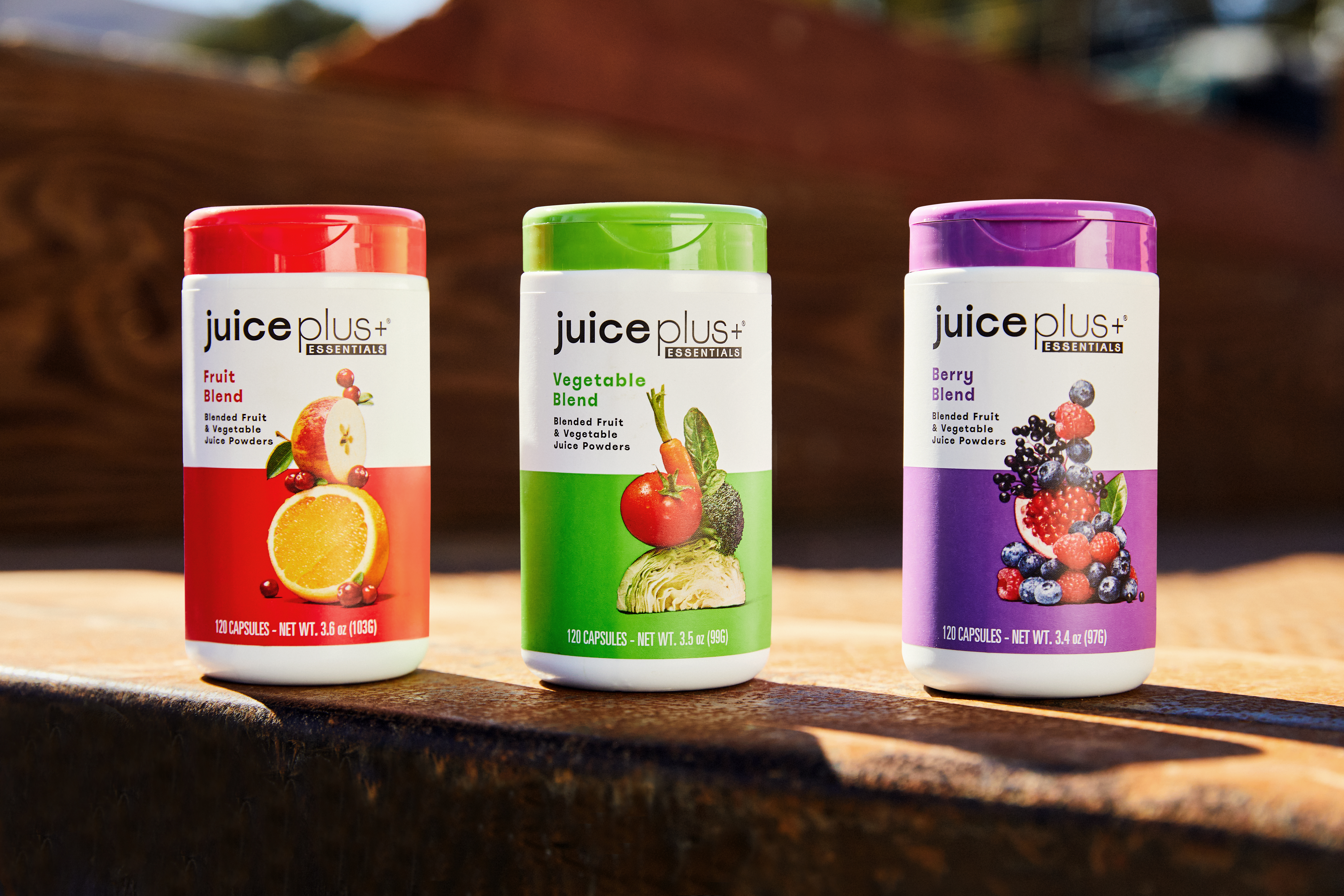Staying Healthy: Boosting Your Immunity with Fruits and Vegetables
As the cold months are rolling in here in Ohio I think about ways to stay healthy and boost my immunity and a diet rich in fruits and vegetables is a great way to do that. Colder weather can mean more people are huddled together inside and we tend to pick up illnesses more often. But how does a diet rich in fruits and vegetables help our immune system?
Fruits and vegetables play a crucial role in boosting our immune system through several key mechanisms:
1. Fruits & Vegetables: Rich in Vitamins and Minerals
- Vitamin C: Found in citrus fruits, strawberries, and bell peppers, vitamin C is essential for the production of white blood cells, which are vital for fighting infections.
- Vitamin A: Present in carrots, sweet potatoes, and leafy greens, vitamin A helps maintain the integrity of skin and mucosal cells, serving as a barrier to pathogens.
- Zinc: Found in legumes and seeds, zinc is critical for immune cell function and helps in the healing process.
2. Fruits & Vegetables: High in Antioxidants
Fruits and vegetables are loaded with antioxidants, such as flavonoids and carotenoids, which help combat oxidative stress. Think of antioxidants as the warrior that fights of the damage that stress does to our immune responses. Antioxidants reducing inflammation and supporting overall immune health.
3. Fruits & Vegetables: Source of Fiber
Dietary fiber, abundant in fruits and vegetables, supports gut health by promoting the growth of beneficial gut bacteria. A healthy gut microbiome is linked to a strong immune system, as a significant portion of the immune system is located in the gut. For more on gut health see my blog on this topic.
4. Fruits & Vegetables: Anti-Inflammatory Properties
Many fruits and vegetables have anti-inflammatory effects, which can help reduce chronic inflammation—an underlying factor in many diseases. Foods like berries, leafy greens, and tomatoes can help improve the immune response.
5. Fruits & Vegetables: Hydration
Many fruits and vegetables have high water content, which helps keep the body hydrated. Proper hydration is essential for maintaining healthy cellular functions and supporting immunity.
6. Fruits & Vegetables: Phytonutrients
Fruits and vegetables contain phytonutrients, (basically micronutrients) which have various health benefits, including enhancing immune function. These compounds can help protect cells and support the body’s natural defense mechanisms.
7. Fruits & Vegetables: Supports Healthy Weight
A diet rich in fruits and vegetables can help maintain a healthy weight, reducing the risk of obesity-related conditions that can impair immune function.
My Recommendations
1. Plan Your Meals Around Produce
Planning your meals aiming for half your plate filled with colorful produce

- Make Soups and Stews: Use a variety of vegetables to create warm,
- comforting soups. Add beans or lentils for protein.
- Roast Your Veggies: Roasting enhances the natural sweetness of vegetables like carrots, parsnips, and squash. Toss them with olive oil and your favorite herbs for a delicious side dish.
- Smoothies for a Boost: Even in winter, smoothies can be a great way to consume fruits. Use frozen berries or add spinach for an extra nutrient kick.
The one I use is Complete by Juice Plus and can even be consumed as a hot beverage. To order click here
and can even be consumed as a hot beverage. To order click here
Explore New Recipes
Experimenting with new recipes can keep your meals exciting and encourage you to try new fruits and vegetables. Look for:
- Vegetable Stir-Fries: Combine seasonal vegetables with lean protein and whole grains for a quick, healthy meal.
- Fruit-Based Desserts: Opt for baked apples or poached pears as a healthier dessert option that satisfies sweet cravings.
- Salads with a Twist: Incorporate winter greens like kale or spinach and add nuts, seeds, and dried fruits for texture and flavor.
3. Stay Mindful of Your Diet
Winter can be a time of overindulgence, especially during the holidays. Stay mindful by:
- Eating with Intention: Focus on nutrient-dense foods and listen to your body’s hunger cues.
- Staying Hydrated: It’s easy to forget to drink water in the winter. Herbal teas and broths can help keep you hydrated and warm.
- Limiting Processed Foods: Instead of reaching for sugary snacks, opt for fruit or a small handful of nuts for a healthy boost.
4. Get Creative with Storage
With fewer fresh options available, learn how to store fruits and vegetables properly:
- Freezing: Freeze seasonal produce to enjoy later. Blanch vegetables before freezing to preserve nutrients.
- Canning and Pickling: Consider canning or pickling vegetables for a burst of flavor and nutrients throughout the winter. My husband cans green beans, tomatoes, peppers and pickles okra for use during the fall and winter seasons.
5. Connect with Local Produce
Support your local farmers by shopping at winter farmers’ markets. This not only helps your community but also ensures you get the freshest produce available.
6. Supplement with High-Quality Fruit & Vegetable Supplements (Not a Multi-vitamin) 

![]() I don’t take a multivitamin as they have been known to cause more harm than good (in some cases) and they are not always well absorbed (hence the bright yellow pee). Instead I eat a fruit and vegetable supplement made by Juice Plus. I have taken these for the past five years and have noticed a big difference in how often I am sick as well as doctor visits. There are almost 50 studies on this product and it is endorsed by many healthcare providers which is why I love it so much. I don’t recommend things I am not willing to try and that I love.
I don’t take a multivitamin as they have been known to cause more harm than good (in some cases) and they are not always well absorbed (hence the bright yellow pee). Instead I eat a fruit and vegetable supplement made by Juice Plus. I have taken these for the past five years and have noticed a big difference in how often I am sick as well as doctor visits. There are almost 50 studies on this product and it is endorsed by many healthcare providers which is why I love it so much. I don’t recommend things I am not willing to try and that I love.
Learn more about the products I endorse by clicking here
Conclusion
Staying healthy in winter doesn’t have to be difficult. Incorporating a variety of fruits and vegetables into your diet is one of the most effective ways to support your immune system. By increasing your intake of fruits and vegetables, you can nourish your body, boost your immune system, and enjoy the delicious flavors of the season. Remember, a little planning and creativity in the kitchen can go a long way in maintaining a balanced diet. Embrace the fall and winter harvest, and make this season your healthiest yet!
Call to Action
Ready to take charge of your health? Share your favorite winter recipes in the comments or email me at mdnutritionhub@gmail.com for more information or to sample the products.
Please follow me on Pinterest or Facebook at MD Nutrition Hub
Let’s all stay healthy together!




Pingback: Get More Plants In: Tasty Tips for Picky Eaters - MD Nutrition Hub